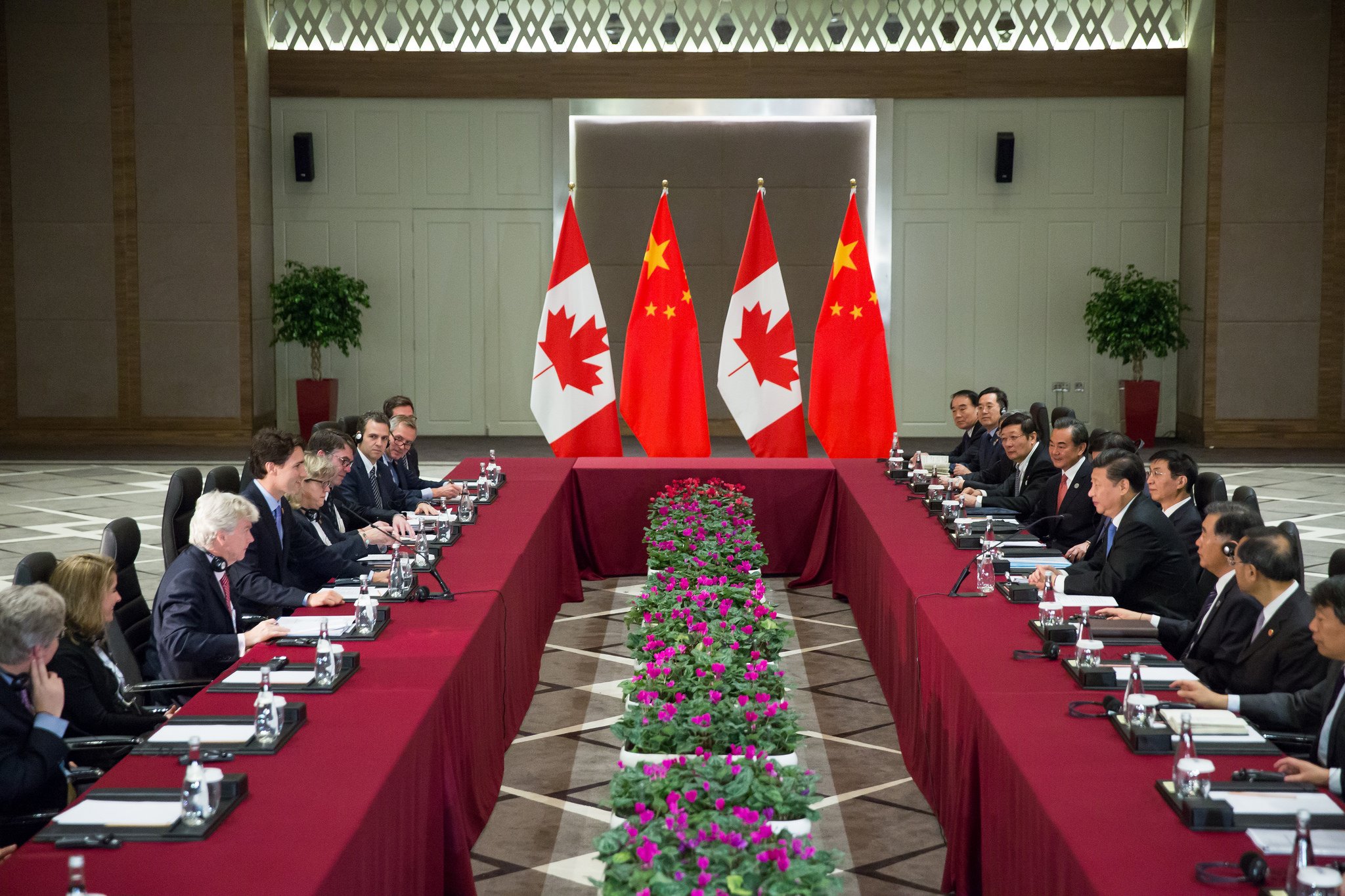In what may come as another setback in the already strained relationship between Canada and China, the Canadian government has published a list of 85 Chinese research institutions that “may pose” a threat to sensitive research and national security.
Besides the 85 Chinese institutions, the list also includes six Russian and twelve Iranian organizations alleged to have some connections to “military, national defense or state security entities.” Global News reported that the list was published on the afternoon of January 17.
According to the Ottawa administration, the listing is part of an effort to protect Canadian research and development against economic espionage and theft in critical industrial sectors, such as advanced weapons, aerospace and space technology, and quantum science and technology.
François-Philippe Champagne, the federal industry minister, in a statement that “While its excellence and collaborative nature defines Canadian-led research, its openness can make it a target for foreign influence, increasing the potential risks for research and development efforts to be misappropriated to the detriment of national security.”
The Federal government, however, stopped short of giving more specific information. Intriguingly, the federal authorities claimed during a technical briefing the same day that they were unsure of the extent to which Canadian research involved participants from overseas institutions.
Speaking anonymously, one source informed reporters that “in defining the list, there would be an understanding of risk factors and how they relate to Canadian institutions but also to international institutions.”
Additionally, officials could not estimate the cost of the new regulations for Canadian research institutes. But they did point out that there was a price for sensitive research being “exfiltrated” by outside parties without making a specific reference to China.

Champagne stated to a House of Commons committee in November last year that the government would not target any particular nation or business regarding the listing. However, it is evident from the list’s high concentration of Chinese groups that Canadian intelligence services regard to be the biggest threat.
For instance, many organizations, such as the National University of Defence Technology, People’s Public Security University of China, and Rocket Force Command College, are directly affiliated with the Chinese military.
The development came when the bilateral relationship between the two countries spiraled, with sporadic incidents of military confrontations in the Indo-Pacific. Most of 2023 saw diplomatic tussles exacerbated by Canada’s accusations that China was meddling with its elections.
The list was published just days after the two sides affirmed that they wished to maintain consistent communication to support what Beijing referred to as the “current difficult situation” in their bilateral relations.
China’s foreign ministry quoted Wang Yi last week saying, “The fundamental reason why China-Canada relations have fallen to a low point in recent years is that there has been a serious deviation in Canada’s perception of China.” Wang Yi was reportedly speaking to Canadian Foreign Minister Melanie Joly.
Several Countries In The West Are Wary Of China
Given the widening rift between China and its rivals in the west led by the United States, such instances are hardly uncommon. Last June, when the Dutch government announced that it was contemplating screening foreign students planning to study in technical fields for possible security risks, it was seen as an attempt at restricting Chinese students.
At the time, the Dutch government clarified that the measure would apply to all students in the European Union and not just Chinese academics. However, the decision followed a Dutch intelligence assessment that Dutch universities had become an “attractive target” for spying, with China being the most significant threat.
In a more recent incident, a report in the German publication Der Spiegel noted that security officials in Bavaria were advised to be wary of the large influx of Chinese students. The officials were most concerned about the grants from the China Scholarship Council (CSC), a state-run organization. Under the initiative, over 5,000 Chinese undergraduate and graduate students have been sent to Germany.
Read More
Last year, the education minister of Germany demanded that student exchange policies with China be revised, noting the heightened risk of scientific espionage posed by Chinese students receiving full state scholarships and coming to study in Germany.
“China is becoming more and more competitive and is a systemic rival in the domain of science and research,” Bettina Stark-Watzinger said in an interview at the time.
Western officials and analysts have frequently mentioned a secret service statute implemented in China in 2017 as a cause of concern. The statute allegedly mandated that “any organization or citizen shall support, assist, and cooperate with state intelligence work, according to the law.”
It gives the Chinese government the power to order any citizen or company operating in China to cooperate with the intelligence services. Essentially, it is an unrestrained license to spy. Western officials have maintained that several Chinese expats, visiting scholars, students, and businesses contribute to the Chinese espionage network by transmitting information back to their country of origin.
China’s principal adversary and rival, the United States, was among the first to address these concerns. In September 2020, more than 1,000 Chinese citizens had their visas revoked by the US under a presidential order that barred admission to researchers and students judged security threats.
The acting head of the US Department of Homeland Security, Chad Wolf, said that Washington was blocking visas “for certain Chinese graduate students and researchers with ties to China’s military fusion strategy to prevent them from stealing and otherwise appropriating sensitive research.”
On every such occasion that has occurred over the last few years, China has decried these decisions as an unwarranted targeting of its citizens and a violation of their human rights. The Canadian list, thus, could intensify the already escalating tensions between Beijing and Ottawa.
- Contact the author at sakshi.tiwari9555 (at) gmail.com
- Follow EurAsian Times on Google News